Five talking points from Milan-San Remo 2022
The spring Classics season got off with a bang at the first Monument of the year
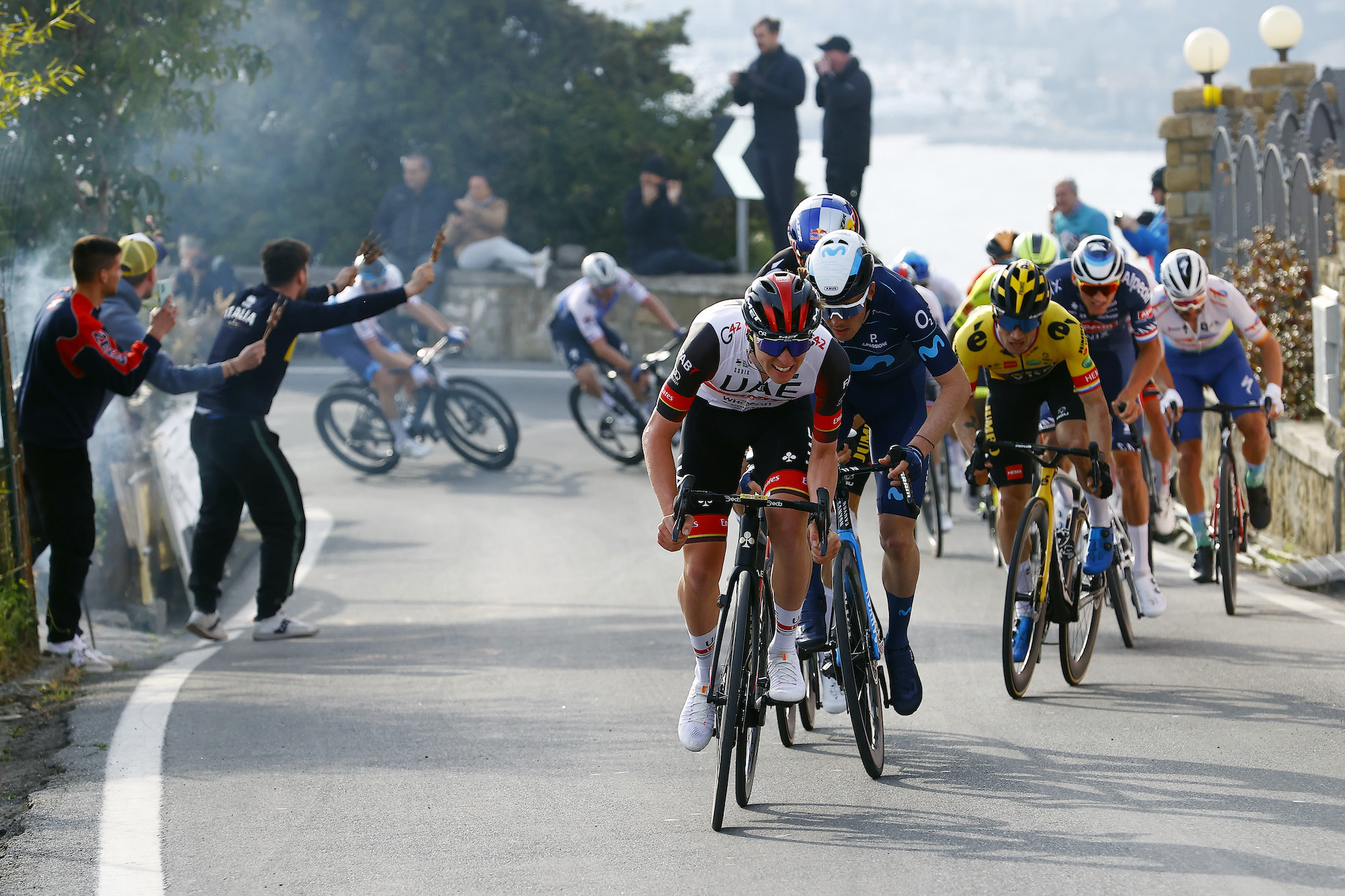
The latest race content, interviews, features, reviews and expert buying guides, direct to your inbox!
You are now subscribed
Your newsletter sign-up was successful
Mohorič triumphs with a descent for the ages
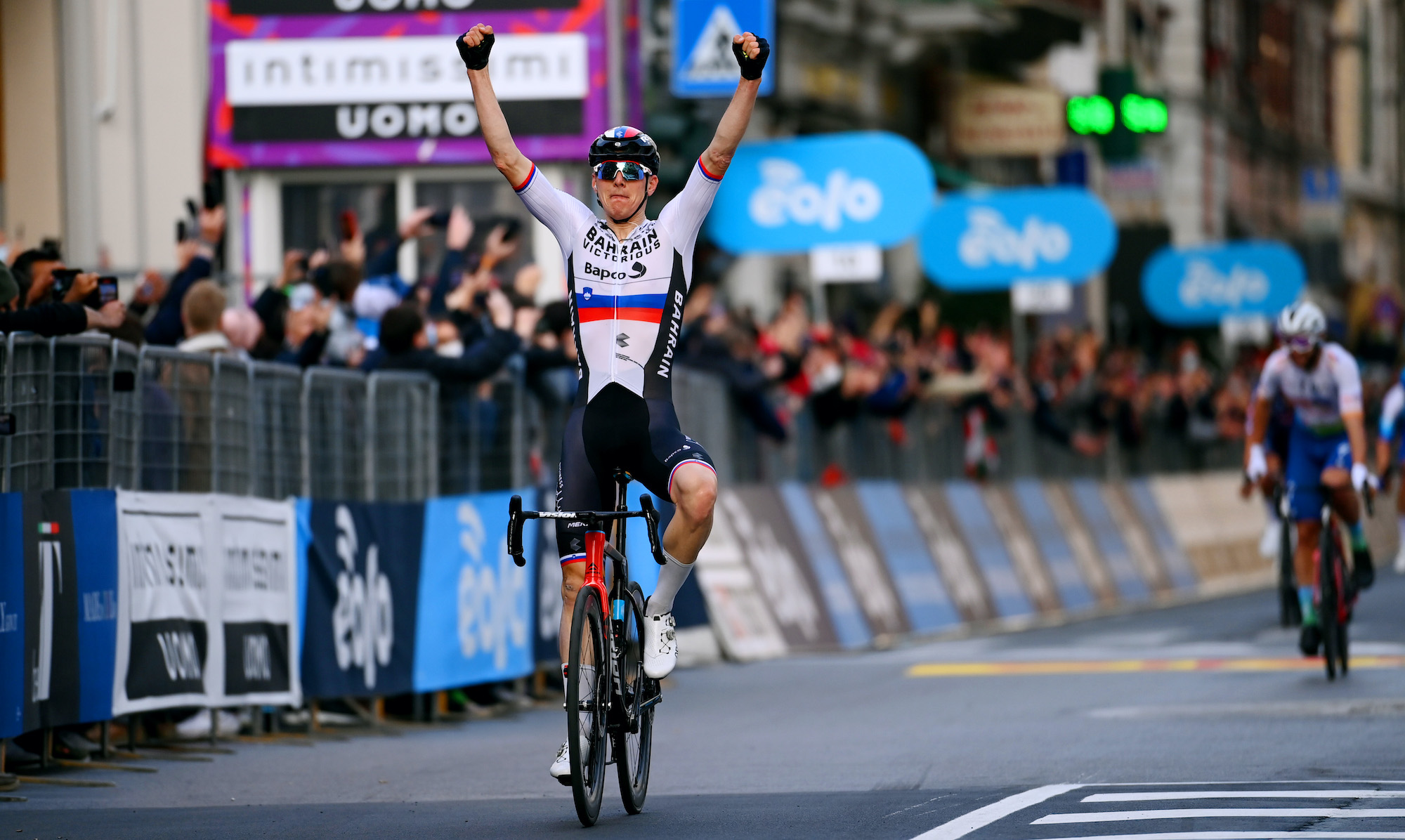
Thirty years on from Sean Kelly’s famous descent of the Poggio, Matej Mohorič (Bahrain-Victorious) produced his own descending masterclass to win this year’s Milan-San Remo.
>>> Matej Mohorič says he used dropper post on his bike at Milan-San Remo
Mohorič is renowned for his prowess going downhill, and he put all his skills to use in a breathless, daredevil finale. It was hair-raising to witness, as the Slovenian bunny-hopped out of the gutter, virtually bounced off a wall, and very nearly slipped his chain, yet somehow stayed upright to take victory.
For all the talk of the battle of the puncheurs on the Poggio and the sprinters on the Via Roma, Mohorič’s ride showed how the more niche skill of descending can also determine the winner of La Primavera. It was also meticulously planned, too, as he described at the finish how he had been targeting this race since the winter, and was using a mountain bike dropper post with this descent specifically in mind.
From a rider credited for popularising the supertuck position, this result proves him to be one of cycling’s great innovators, as well as one of the boldest. To summit the Poggio with a deficit to a quality leading quartet of Tadej Pogačar (UAE Team Emirates), Wout van Aert (Jumbo-Visma), Søren Kragh Andersen (DSM) and Mathieu van der Poel (Alpecin-Fenix), and then go on to win solo simply by descending faster than everyone else was a truly remarkable ride, and one that will surely be remembered as one of the all-time great descents.
Pogačar can't quite finish off team's good work
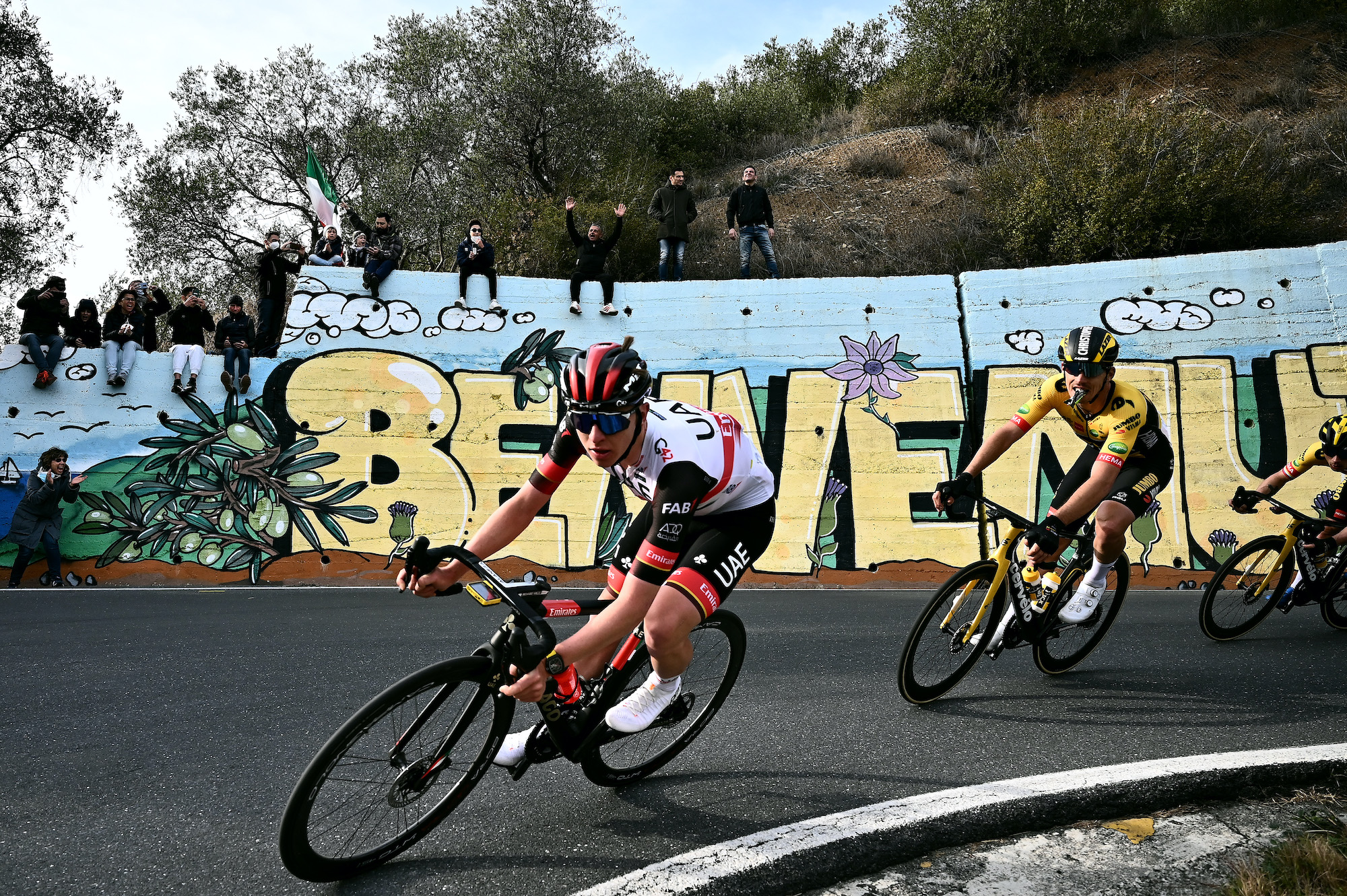
Despite the devastation caused by his UAE Team Emirates domestiques on the Cipressa, for once Tadej Pogačar wasn’t able to take victory.
There was much speculation before the race as to whether Pogačar would attack on the Cipressa, but instead the team’s tactic was to use their domestiques to shed as many riders as possible, with first Jan Polanc and then Davide Formolo burning themselves to cause as much damage as possible.
The latest race content, interviews, features, reviews and expert buying guides, direct to your inbox!
They did a great job, reducing the peloton to little more than 30 riders, considerably smaller than it normally is at this stage of the race, and with the likes of Alexander Kristoff (Intermarché-Wanty-Gobert-Materiaux), Fabio Jakobsen (Quick-Step Alpha Vinyl), Jasper Philipsen (Alpecin-Fenix) Elia Viviani, Filippo Ganna, Tom Pidcock (all Ineos Grenadiers) and, due to an earlier mechanical, Peter Sagan (TotalEnergies) all dropped.
Now it was left to Pogačar to attack what was left of the peloton on the Poggio, and that the Slovenian did with a total of four accelerations. But the gradients weren’t quite steep enough for him to make the difference, and each time a rider — usually Wout van Aert — was able to latch onto his wheel, prompting him to sit up. In fact, it was an attack from Søren Kragh Andersen that instead forced the final selection over the top, joined by Pogacar, Van Aert and Mathieu Van der Poel.
That quartet was quickly caught by a charging Mohorič and then several other riders, however, and Pogačar ultimately had to settle for fifth place from a small group sprint. It’s a good result for a rider who isn’t well-suited to this race, but still feels like a disappointment given his world-beating form in recent weeks.
Van der Poel is back with a bang
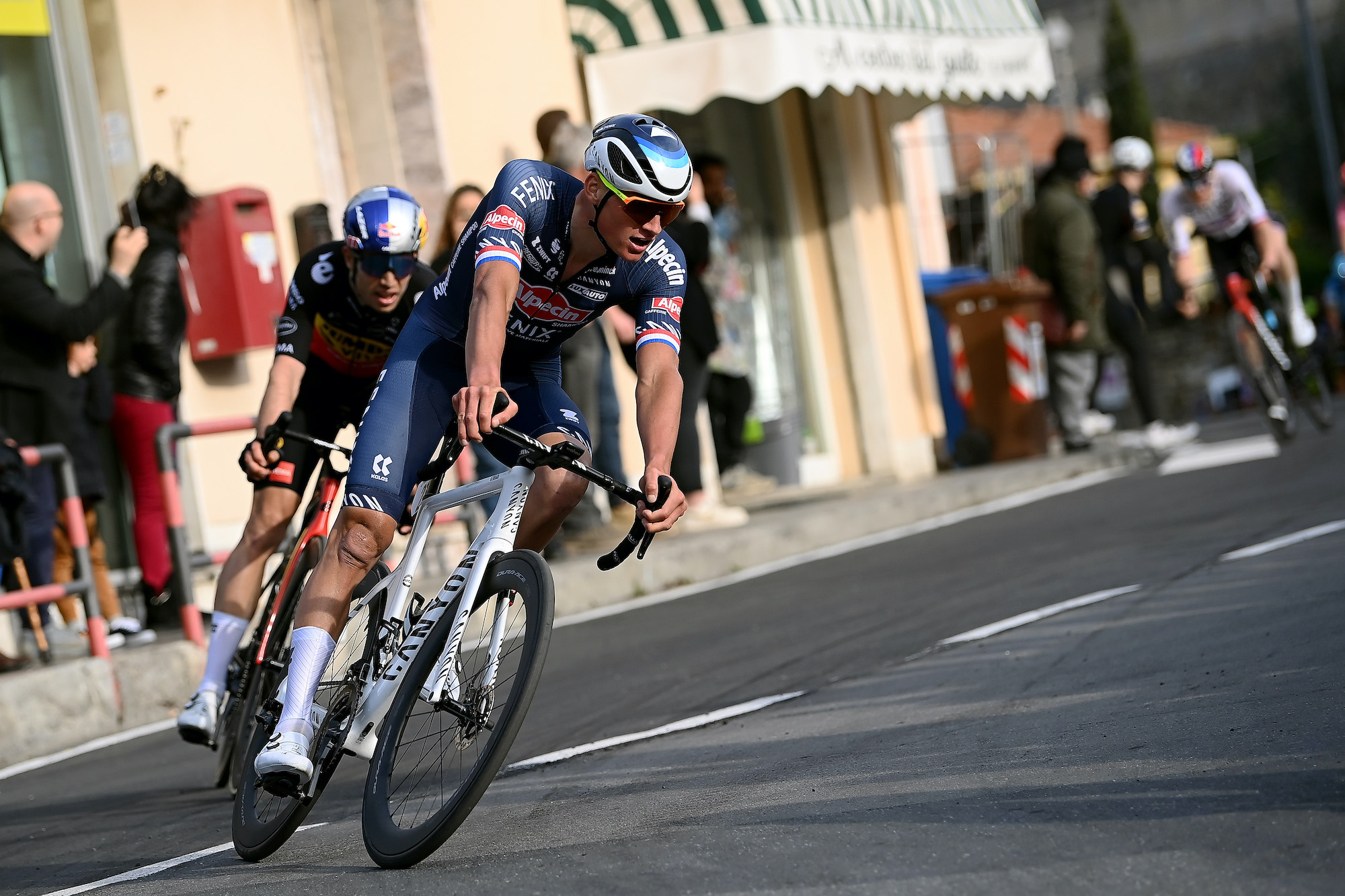
For any other rider, finishing third in a race with the calibre and competitiveness of Milan-San Remo, on what was their very first appearance of the season following five long months out with injury, would be a huge surprise, especially considering their appearance was only announced a matter of days before.
But we’ve come to expect the unexpected from Mathieu van der Poel, so much so that, despite the circumstances, a third-place finish actually feels a little disappointing.
Much to the trepidation of all his rivals, it became increasingly clear that the Dutchman was already back up and running during the day especially when he survived the furious pace of the Cipressa right up at the front of the peloton. Then on the Poggio he looked at his very best, following all the moves and cresting the summit as part of the leading quartet.
The fact he managed to win the small sprint for third-place also proved he already has his sprinting legs, and may leave him frustrated at allowing both Mohorič and later Anthony Turgis (TotalEnergies) up the road to take first and second respectively (a result that, it should be said, was arguably the best yet in Turgis’ ever-improving career).
But third-place is still a career-best finish for Van der Poel at Milan-San Remo, and shows that he is back to his best already. With a whole cobbled campaign to come, it looks like the Dutchman will be a major protagonist this spring after all.
Van Aert left isolated in the finale
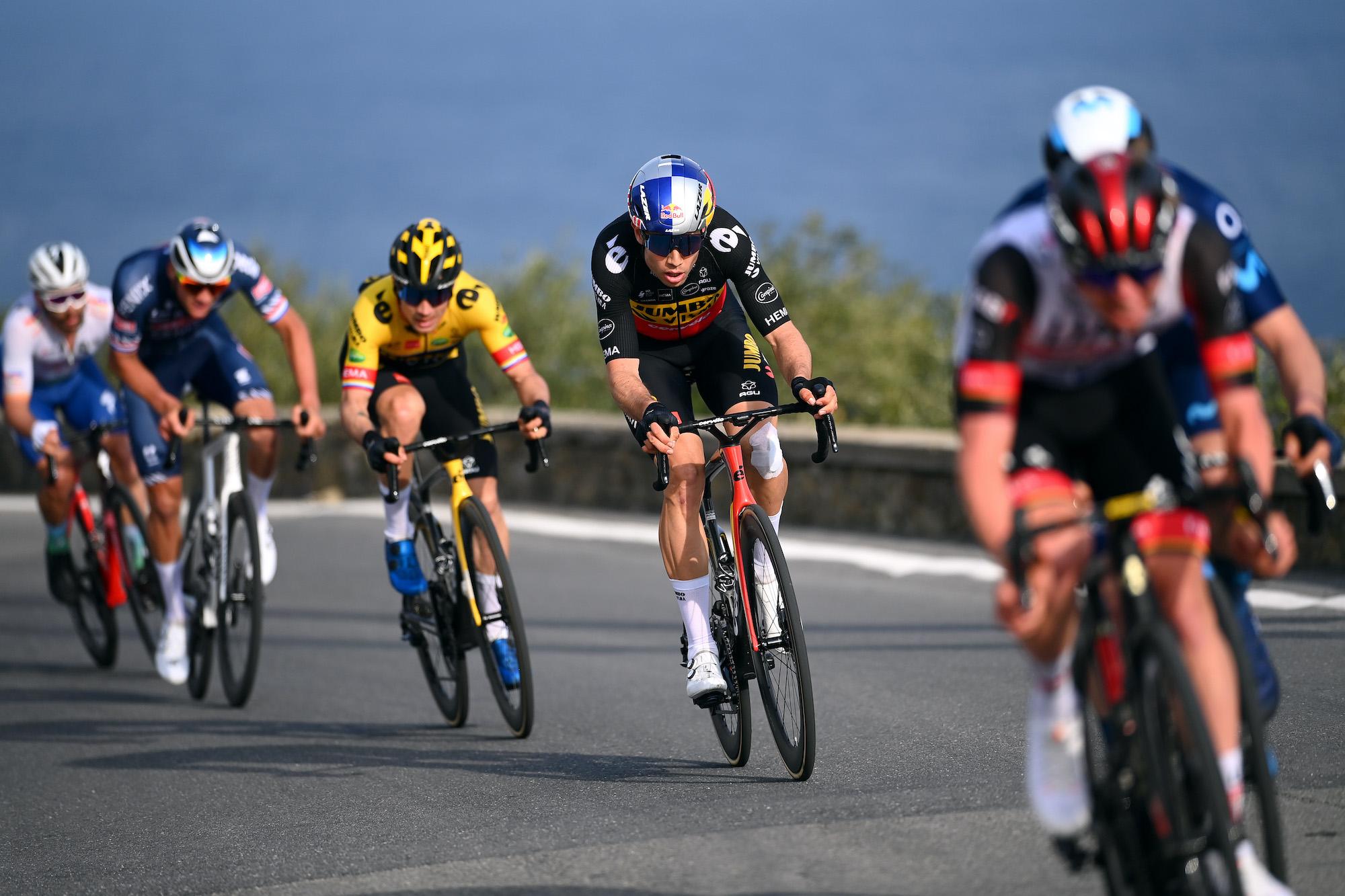
Despite having teammates the quality of Primož Roglič and Christophe Laporte to support him, Wout van Aert found himself in much the same situation as last year in the finale, isolated and left to fruitlessly chase a lone leader on the descent of the Poggio.
Much of Van Aert’s strength had already been used up on the climb of the Poggio, where time and again he was the man to respond to Pogačar’s accelerations. It would have been hoped that Roglič could do this for him, and indeed the Slovenian did provide useful tactical assistance when he countered one of Pogačar’s moves. But Roglič didn’t have the strength to stay with the leaders over the top of the Poggio, leaving Van Aert isolated among riders who did not want to take a rider with his sprinting capabilities to the finish.
As a result, the chase behind Mohorič on the descent was not coordinated, and the ghost appeared to be given up for good when they sat up inside the final kilometre.
An exhausted Van Aert didn’t even have the legs left to produce his usual sprint, and only finished eighth — his lowest ever at Milan-San Remo.
It does not seem like a coincidence that the two editions since Van Aert won Milan-San Remo have both been won by opportunistic solo attackers. So long as everyone remains so fearful of the Belgian’s sprint finish, it will be difficult for him to win, and a great incentive for everyone else to plan a well-timed attack.
It's getting even harder for the sprinters
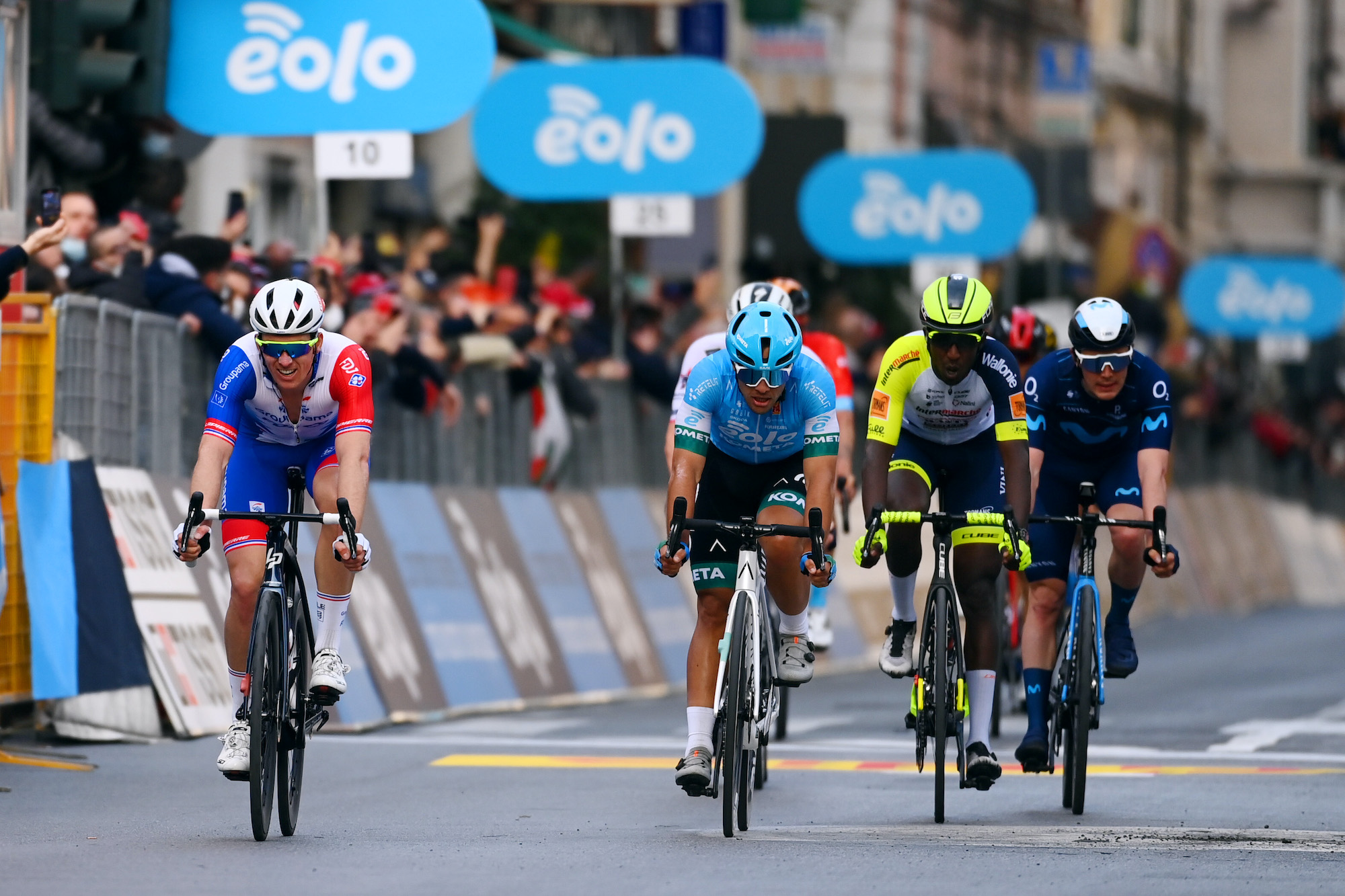
It’s now been six successive editions of Milan-San Remo that have not finished in a bunch sprint, and if anything this was the hardest edition yet in that time for the sprinters.
Many were out of contention before they’d even reached the foot of the Poggio, with UAE Team Emirates setting a far fiercer pace than usually happens on the Cipressa.
There were a few who bravely toughed it out, and managed to remain in contention even after the Poggio. Despite only deciding to ride a few days ago, Mads Pedersen (Trek-Segafredo) rode very well to take sixth on debut; Michael Matthews (BikeExchange-Jayco) was his usual consistent self, taking fourth to once again finish in the top seven for the fourth time in five years; Arnaud Démare (Groupama-FDJ) dug deep to finish 10th, and Biniam Girmay (Intermarché-Wanty-Gobert-Materiaux) continued his exciting development to finish 12th.
But the purer sprinters couldn’t get a look in, and at present it’s difficult to see how there could be a repeat of, say, Mark Cavendish’s triumph in 2009. Perhaps it’s time to drop the race’s label of ‘the sprinters’ classic’.
Stephen Puddicombe is a freelance journalist for Cycling Weekly, who regularly contributes to our World Tour racing coverage with race reports, news stories, interviews and features. Outside of cycling, he also enjoys writing about film and TV - but you won't find much of that content embedded into his CW articles.